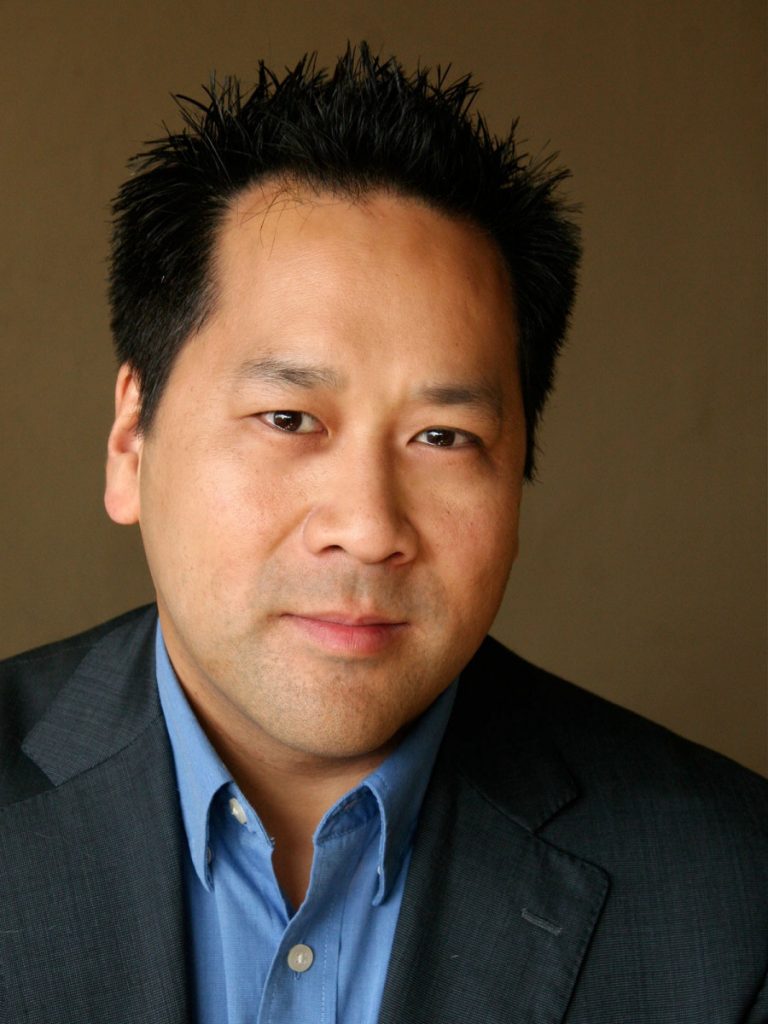When it comes to new ways of recording history, Wikipedia is often the first thing that comes to mind. Andrew Lih, a technology journalist and historian of Wikipedia, will bring his research and online collaboration experience to Chautauqua, speaking at 10:45 a.m. Wednesday, July 20, in the Amphitheater.
Continuing Week Four’s Chautauqua Lecture Series discussion on “The Future of History,” Lih will present the opportunities Wikipedia and its open source data have for making information more accessible to the world.
Lih began researching the online encyclopedia in the early 2000s when its crowdsourcing model began to generate expansive growth. After a team of volunteers and one paid professional created just 12 articles in their first year, it was apparent that a radical new method was needed to build content.
Using Wiki software, originally created to allow programmers to share and refine computer code, anyone on Earth could now start and contribute to articles, lifting the project off the ground. It was a model that worked “in practice, but not in theory,” Lih said at Harvard Law School in 2009. He was astounded that such a thing could be written by nonexperts.

“I couldn’t believe that all these articles were created by people around the world collaborating on the Internet and producing such great work,” Lih said in 2009.
The “core non-negotiable policy” that makes Wikipedia work is its neutral point of view and objectivity standard; all contributors can work cooperatively in one direction when their goal is to create a cohesive and comprehensive perspective.
Wikipedia’s policy of neutrality has allowed it to flourish, as it aims to “represent fairly, proportionally, and as far as possible without bias, all significant views that have been published by reliable sources on a topic,” Lih said in a 2014 TEDx talk.
In his book The Wikipedia Revolution: How A Bunch of Nobodies Created The World’s Greatest Encyclopedia, Lih explains how Wikipedia became a solution for humanity, addressing the problem of a “knowledge gap:” the former lack of a complete record of human history between initial reporting by news outlets and encyclopedias writing about it. After a news cycle completed a topic, it was necessary to wait for “heritage institutions, book writers or historians” to further cover the topic. Wikipedia’s technology enabled continuously-edited articles on millions of subjects, bridging that divide.
“What Wikipedia does, how it functions, is it fills in that gap and is this working draft of history,” Lih said in 2014.
For many years after its conception, Wikipedia survived solely on individual donations to cover all operating costs, living a “hand-to-mouth existence,” Lih told his TEDx audience.
Now, its future looks more sustainable. The Wikimedia Foundation, which hosts Wikipedia and other community projects that aim to develop and distribute freely licensed knowledge and education content, launched an endowment in 2016 — now holding over $100 million — to support its objectives.
Having become well-established as the world’s go-to resource for information, museums and historical institutions across the globe have recognized Wikipedia’s legitimacy and seen opportunities for collaboration to make the site’s articles more accurate and complete. Agencies such as the National Archives and Records Administration and institutions such as the Smithsonian have hired employees known as “Wikipedians in residence,” who are tasked with facilitating these collaborations and building connections between the organization and Wikipedia’s contributor network.
Lih currently works in a similar position as digital and Wikimedia Strategist for the Metropolitan Museum of Art. He focuses on the utility of Wikidata, the open data and knowledge base supporting Wikipedia articles, in enriching the Met’s online presence and enabling much more content from cultural institutions like the Met to be imported and made available for free. Lih’s work using linked open data to make connections over humanity’s cultural history will be central to his talk.
Wikidata, which stores concepts and relationships between subjects in a structured, multilingual, freely-licensed way, has the power to “bring together historically disconnected and incompatible information,” Lih said at a 2019 Museum Computer Network conference. Open-access linked data is a major step towards realizing the original Web dream for a network of databases people can read and contribute to, of which Wikidata is a part.
As Wikipedia has enabled the quick and effective sharing of history across the globe for the past two decades, Wikidata stands now as another “wonderful crowdsourcing experiment,” making possible new connections across cultures and heritages. Free, open and timely data will make the future of history all the more accessible.




